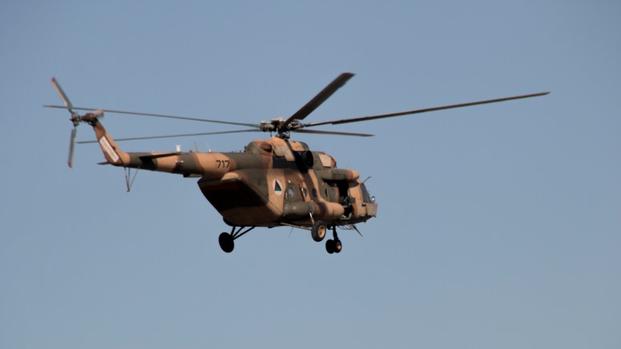The U.S. has stopped buying Russian Mi-17 "Hip" helicopters for Afghanistan but the rugged choppers will continue to be a mainstay of the Afghan Air Force -- if the maintenance problem can be solved, according to the U.S. and NATO commander in Afghanistan.
At the Pentagon last Friday, Army Gen. John Nicholson said the Afghan government had gone to the Russians to ask for help with spare parts and maintenance for the Mi-17 choppers during a transition to UH-60 Black Hawk helicopters, but the Russians rejected the request.
"The Afghan government solicited from them help with maintaining these airframes, but the Russians have not agreed to do it," Nicholson said. The result was that "the maintenance of this fleet is going to be very difficult," he said.
Australia and other partners in the coalition have come forward to pledge funding for maintenance of the Mi-17s to allow the Afghans "to bridge this period until the UH-60s are fielded," Nicholson said.
The Afghans were adapting well to the small U.S. MD-530 Cayuse Warrior helicopters equipped with rockets and .50 caliber machine guns for ground support, Nicholson said, but they were still reliant on the bigger frame Mi-17s for supply runs and medical evacuations.
The Mi-17 helicopters are a great airframe that the Afghans use and they're comfortable with. The issue is going to be the ability to maintain them," said Nicholson, commander of U.S.-Forces Afghanistan and NATO's Resolute Support mission.
The U.S. had been buying Mi-17s for the Afghans under a controversial deal with the Kremlin-run arms agency Rosoboronexport despite complaints in Congress from both sides of the aisle about doing business with the Russians while they were acting aggressively in Crimea, Ukraine and Syria.
Nicholson said the deal began falling apart in 2014 when the U.S. and its allies imposed sanctions on Russia. Late last month, the White House and the Pentagon sent an $11.6 billion supplemental defense budget request to Congress that included $264 million for Sikorsky made-in Connecticut UH-60 Black Hawks to replace the Mi-17s.
In a statement, Sen. Chris Murphy, a Connecticut Democrat, said the Pentagon had notified Congress that it would stop buying the Mi-17s.
"I’ll never understand why the U.S. government sent taxpayer money to Russia for helicopters in Afghanistan while Russia was supporting the Assad (President Bashar al-Assad) regime in Syria and invading eastern Ukraine," Murphy said.
The maintenance of the Mi-17s was not the only problem the U.S. and the Afghans had with the Russians, Nicholson said.
He charged that "Russia has overtly lent legitimacy to the Taliban and their narrative goes something like this -- that the Taliban are the ones fighting the Islamic State, not the Afghan government."
"So this public legitimacy that Russia lends to the Taliban is not based on fact, but it is used as a way to essentially undermine the Afghan government and the NATO effort and bolster the belligerents," Nicholson said.









